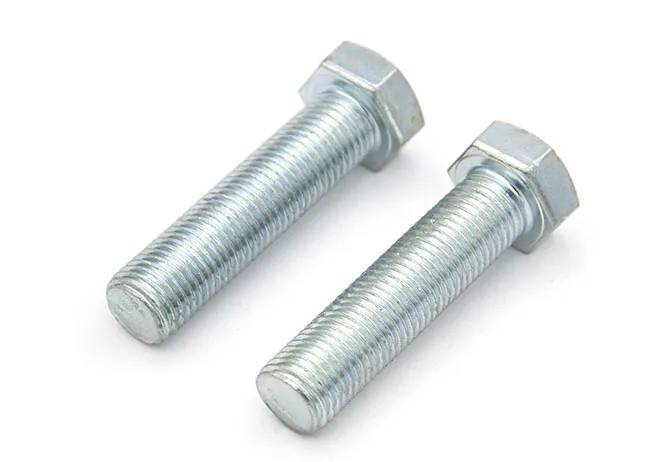hook bolts suppliers
តុលា . 12, 2024 19:10 Back to list
hook bolts suppliers
Understanding Hook Bolts and Their Suppliers
Hook bolts are essential components widely used in construction and engineering applications. These specialized fasteners play a crucial role in securing objects and ensuring structural stability. In this article, we will explore the attributes of hook bolts, their applications, and the key considerations when seeking reliable suppliers.
What are Hook Bolts?
A hook bolt is a type of fastener that features a hook-shaped end, which allows it to latch onto objects securely. Typically made from durable materials like steel or stainless steel, these bolts are designed to withstand significant stress and environmental conditions. The hook design provides a strong connection point, making them ideal for various applications ranging from supporting structural elements to securing equipment and fixtures.
Applications of Hook Bolts
Hook bolts are versatile and can be found in numerous industries
1. Construction In building construction, hook bolts are used for anchoring structures, hanging fixtures, and securing scaffolding. Their ability to maintain strong connections under heavy loads makes them invaluable on job sites.
2. Manufacturing In manufacturing environments, hook bolts are often employed to fix machinery and equipment in place. Their robust design ensures that operational integrity is achieved, even during intense vibrations and movements.
4. Marine Hook bolts are also used in marine applications, where they help secure rigging or other equipment that is subject to extreme weather conditions.
hook bolts suppliers

Key Considerations for Suppliers
When looking for hook bolt suppliers, certain factors should guide your selection process
1. Quality and Standards Ensuring that the supplier adheres to industry standards is paramount. High-quality materials and thorough testing procedures should guarantee that the hook bolts are reliable and durable. Certifications such as ISO or ASTM compliance can be good indicators of quality.
2. Range of Products A reputable supplier should offer a variety of hook bolts and related fasteners. This range allows for more flexibility in fulfilling specific project requirements. Suppliers should have options of different sizes, materials, and strengths, catering to diverse applications.
3. Reputation and Experience The supplier's reputation within the industry can provide insights into their reliability and service quality. Established suppliers with years of experience often have the necessary expertise to meet customer demands effectively.
4. Customization Options Depending on the project, standard hook bolts may not always suffice. Suppliers that offer custom manufacturing can provide tailored solutions to meet unique specifications.
5. Delivery and Service Timely delivery is critical in construction and manufacturing projects. A supplier's commitment to customer service, including quick response times and effective communication, can significantly impact project timelines.
6. Pricing While quality should never be compromised, it's essential to compare prices among different suppliers. However, keep in mind that the cheapest option may not always deliver the best value. Look for suppliers offering a good balance between cost and quality.
Conclusion
Hook bolts are integral to various applications across multiple industries, requiring suppliers that can deliver high-quality, reliable products. By considering factors such as material standards, product range, experience, customization options, service, and pricing, businesses can find suitable hook bolt suppliers that meet their specific needs. A strong partnership with a reputable supplier not only ensures the integrity of your projects but also contributes to overall efficiency and success.
Latest news
-
High-Quality Bolts for Lawn Mower Handle Supplier & Manufacturer
NewsAug.21,2025
-
Reliable Axle Nuts Supplier | High-Quality Automotive Parts
NewsAug.19,2025
-
Premium Wire Bolts Suppliers | Durable & Reliable Fasteners
NewsAug.18,2025
-
Leading Metric Wood Screw Companies & Manufacturers
NewsAug.17,2025
-
Top Wire Bolts Suppliers - Quality & Durable Fasteners
NewsAug.15,2025
-
Trusted Wire Bolts Company | Quality Fasteners Supplier
NewsAug.14,2025
